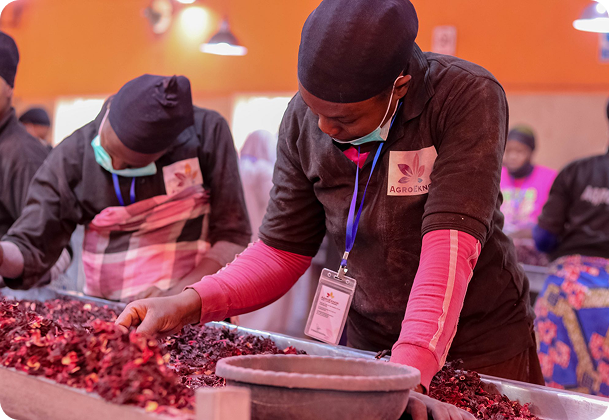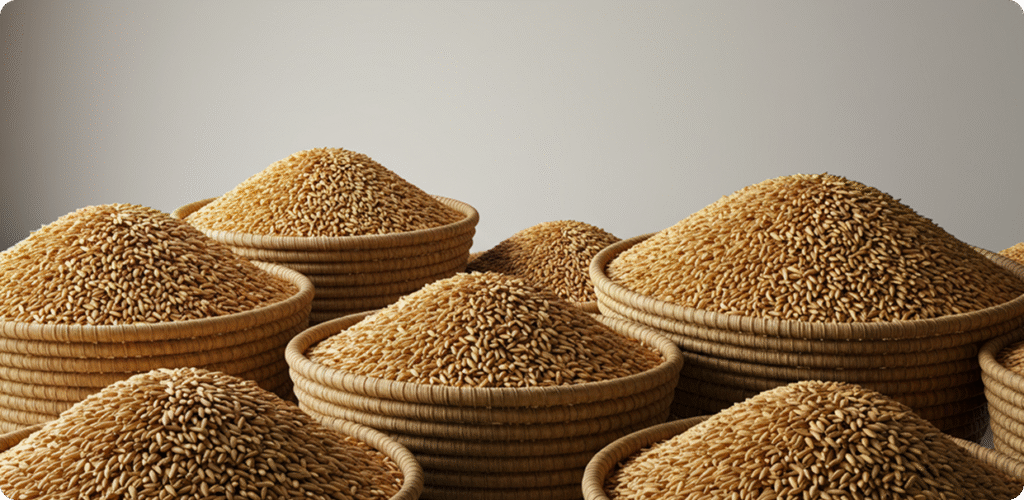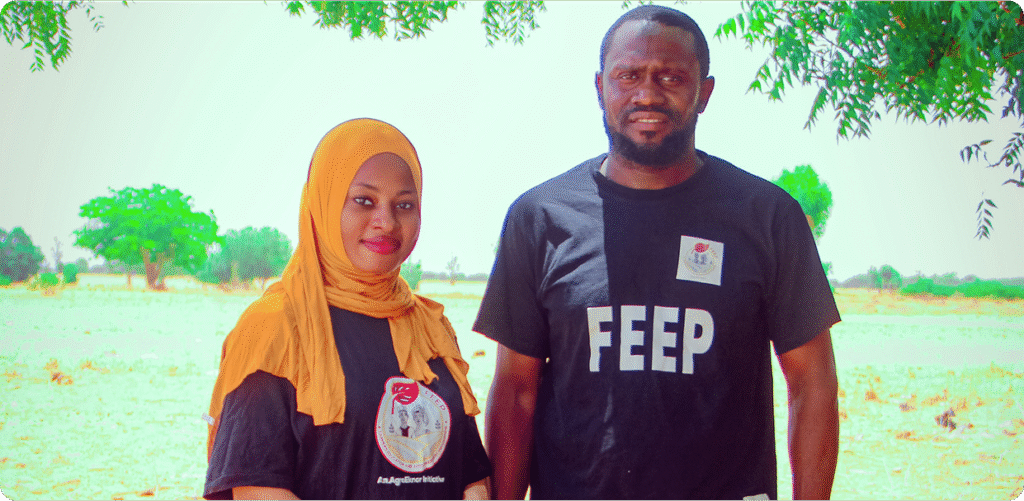Our Initiatives
FEEP & FEEP Foundation
The Farmers Education and Empowerment Program (FEEP), designed in 2021, is an AgroEknor initiative conceived to empower smallholder farmers. It targeted over 100,000 farmers globally, with a primary focus on empowering women in the agricultural value chain.
This initiative aims to help Northern Nigeria upgrade its agriculture value chain with a focus on delivering increased volumes of sustainably produced, quality Hibiscus Flowers to premium export markets while including smallholder farmers in the higher value export earnings. The program’s impact was particularly significant for women smallholder farmers, who comprised 85.34% of the beneficiaries.
The empowerment of women in agriculture led to economic empowerment, social empowerment, food security, and sustainable development. The FEEP initiative successfully empowered 5,000 farmers, with a significant focus on women’s participation and leadership in agriculture.
By providing access to inputs, financial resources, and capacity-building opportunities, the program not only improved agricultural productivity and livelihoods but also promoted gender equality and social inclusion in rural areas.

AgroEknor Fonio Program

Background
Fonio is a cereal crop that is grown and consumed in various parts of Nigeria. It is highly nutritious and has been hailed as a solution to malnutrition and poverty in the country.
Vision Statement
To enhance the economic and social well-being of smallholder farmers cultivating fonio.
Mission Statement
To ensure sustainable production, processing, and marketing of fonio while simultaneously improving the livelihoods of smallholder farmers.
Statement of the Problem
Despite the potential of fonio as a cash crop, the value chain of its production in Nigeria is still underdeveloped. Lack of access to finance, inadequate infrastructure, and limited technical knowledge among farmers are some of the factors hampering the growth of the industry.
Solution
To improve the fonio supply value chain in Nigeria, AgroEknor International Limited needs to collaborate with various stakeholders and address the challenges facing the industry. This includes providing adequate finance to farmers, investing in infrastructure such as irrigation systems and storage facilities, and training farmers on best practices in fonio production.
Additionally, improving market access for fonio products could provide incentives for farmers to increase production and improve quality.
Program Objectives
- To increase the yield and quality of fonio through appropriate farming practices adoption.
- To improve post-harvest handling and processing techniques for fonio to reduce wastage while enhancing quality standards.
- To improve market access and strengthen linkages between smallholder farmers involved in fonio cultivation with processors, buyers, and exporters.
- To promote participation from women and youth in all activities related to fonio production as well as its marketing processes.
- To facilitate climate-smart agricultural practices that encourage sustainable production while preserving environmental conservation principles for future generations.
Project Homeland

Project Overview
This initiative aims to rethink food waste in Nigeria, enhancing the discussion across several states by converting urban waste into nutrient-dense fertilizer to cultivate nutrient-rich foods.
Project Objective
- Mitigate the food waste problem
- Generates a highly productive organic fertilizer from food waste
- Reduce emission and pollution relative to alternative options
- Expansive market with increasing food safety concerns.
Project Impact
Project Homeland uses microbes to process food while it is still fresh, maintaining nutritional value, generating a nutrient dense fertilizer to build up healthy soils which grow nutrient rich food. This project will increase food production in Nigeria thereby enhancing the achievement of SDG 2,3, 12 and 13.
